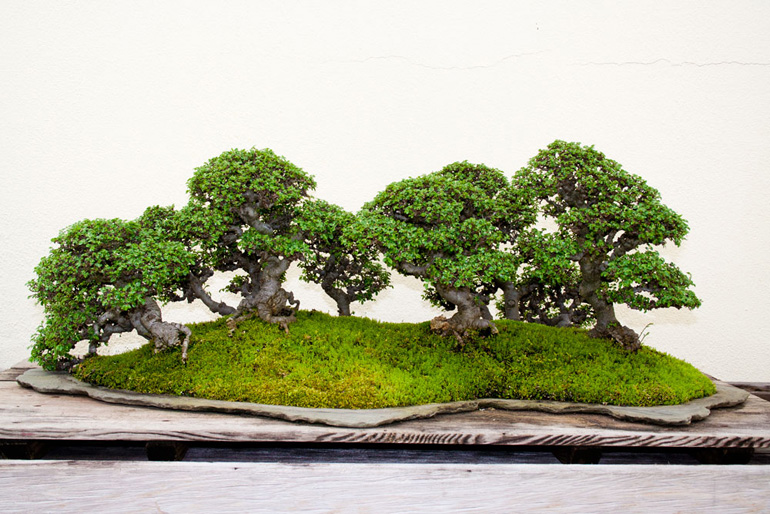
Here's what Felix Laughlin, the president of the National Bonsai Foundation wrote about this outstanding forest... "Wayne, the photo of the forest of Chinese elms is from the North American Collection at the National Bonsai and Penjing Museum, and was donated by Susanne Barrymore; it’s been in training since 1988."
Two full pallets of Green T turntables just arrived, and a large shipment of Bonsai Aesthetics wire and tools is due any minute, so it’s time for a shortcut. This post originally appeared here February, 2017. As usual, I’ve made a few changes.
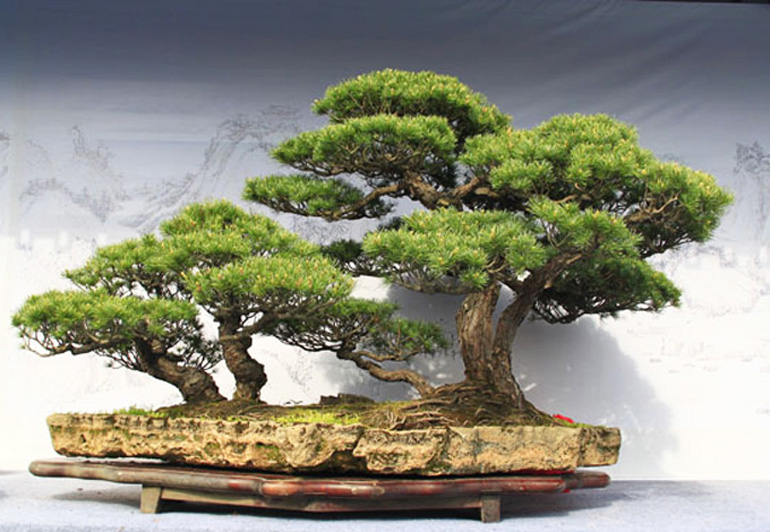
Does five trunks constitute a forest? Maybe we should call it a mossy glade. Whatever you call it, it has to be one of the most impressive multiple trunk bonsai anywhere. It doesn't hurt that the individual trees can stand on their own, especially the twin trunk tree on the right (the focal point). The magnificent pot looks like an escarpment in the Rockies. Robert Steven took the photo at the 2012 BCI convention in Guangzhou, China. Though it's easy enough to tell it's a pine forest, my eyes aren't sharp enough to tell the species.
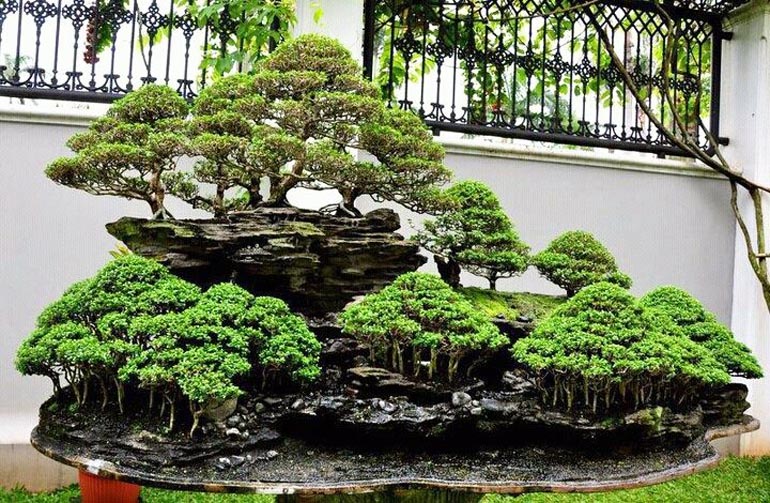
The sheer size and inventiveness of this mammoth planting is beyond impressive, though I'm not sure how the two distinctly different parts belong together. In fact, the large trees above that appear so close to the viewer, betray the distant feel of the smaller trees below. Still, based on sheer magnitude and daring, this is a planting that you'll most likely never forget. The trees are Hedge maples (Acer campestre). I've seen this photo several places. This time it was here.
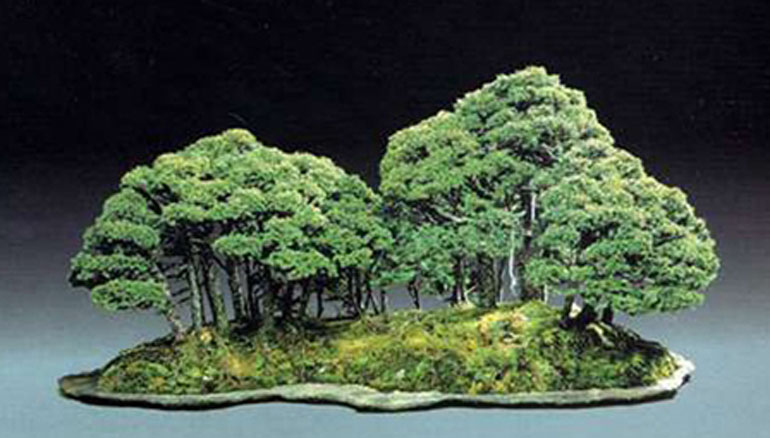 Recognize this? You probably do if you've been around for a while. If not, this is what a planting by a bonsai master might look like.
Recognize this? You probably do if you've been around for a while. If not, this is what a planting by a bonsai master might look like.
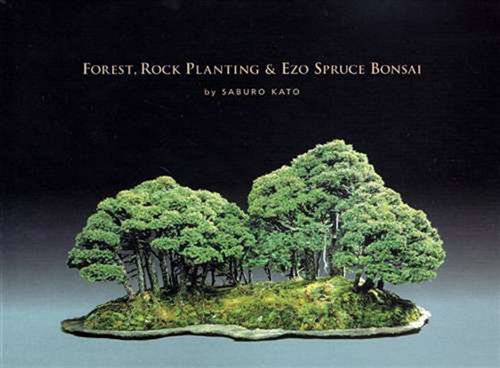
Here it is on the cover of one of the four or five best bonsai books in the English language (or any language). Available at Stone Lantern.

